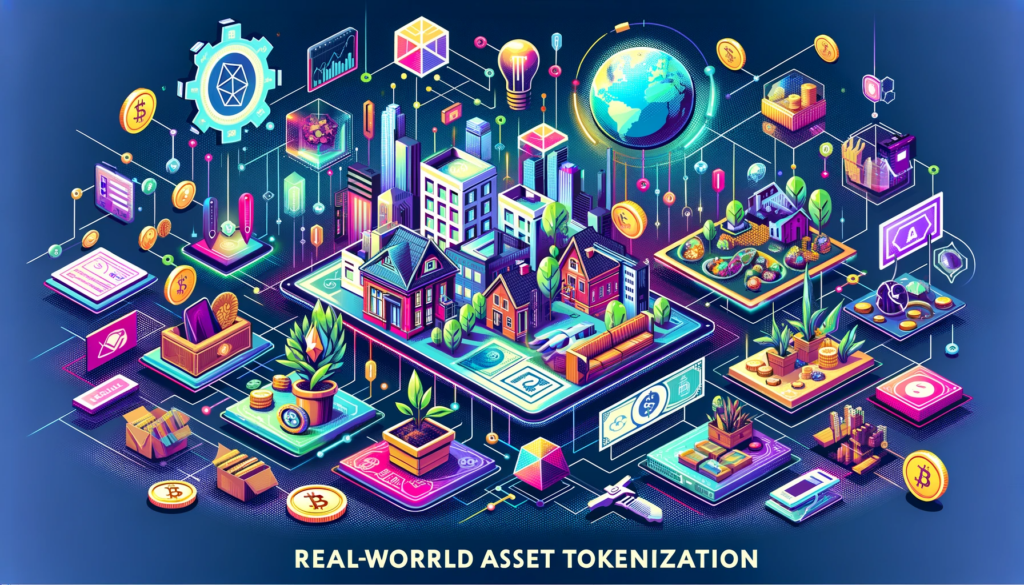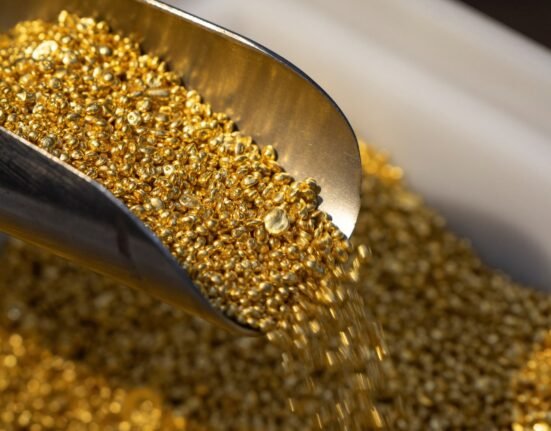The integration of real-world assets (RWAs) into cryptocurrency and traditional finance is emerging as a significant trend, potentially leading to a new era of economic growth. Historically, technology adoption has followed a pattern of initial excitement, followed by setbacks, and finally, stabilization into periods of sustained growth, as seen in the dot-com era. In the current phase of Web3 technology, decentralized finance (DeFi) and non-fungible tokens (NFTs) have laid the groundwork for transformative changes in financial systems, focusing primarily on digital assets.
However, the next growth phase is anticipated to revolve around the tokenization of RWAs, which could bring substantial value into the cryptocurrency sector. Major financial institutions and startups are exploring the use of blockchain technology to tokenize tangible assets like commodities, art, and financial instruments. This movement aims to reduce the reliance on intermediaries, leading to more efficient and transparent transactions.
Despite the potential, challenges exist, particularly in ensuring the reliability of tokenized assets. A proposed solution involves using smart contract-based protocols to secure commitments for commercial exchanges, paving the way for a more trustworthy and programmable economic system. This advancement could lead to what is referred to as a “Turing-complete economy,” where programmable commerce becomes a norm. This shift in asset management and investment signals a significant evolution in both the crypto and traditional finance sectors.
Real-world asset (RWA) tokenization is revolutionizing how we view and interact with tangible assets. By leveraging blockchain technology, various sectors are experiencing a paradigm shift in asset management, ownership, and investment. Let’s delve into a few illustrative examples of how RWA tokenization is being applied across different industries:
- Real Estate: In the real estate sector, tokenization is transforming property investment. By breaking down expensive assets into smaller, more affordable digital tokens, a wider range of investors can participate in real estate markets. This democratization of property investment allows for fractional ownership, where multiple investors can hold stakes in a property, thus diversifying their portfolios without the need for substantial capital.
- Art and Collectibles: The art world is embracing tokenization to address issues related to provenance and ownership. By tokenizing artwork and collectibles, artists and collectors can ensure authenticity and track ownership history through blockchain. This not only simplifies the process of buying and selling art but also opens up opportunities for fractional ownership of expensive artworks, making art investment more accessible.
- Commodities: Commodities like gold, oil, or agricultural products are being tokenized to streamline trading and investment processes. Tokenization of commodities allows for fractional ownership and eliminates many logistical challenges associated with physical storage and transportation. Investors can buy tokens representing a share of a physical commodity, facilitating easier and more transparent transactions.
- Financial Instruments: Bonds, stocks, and other financial instruments are being tokenized to enhance liquidity and market efficiency. Tokenization in this area simplifies the process of buying, selling, and transferring securities, making the financial markets more accessible to a broader range of investors. It also reduces the time and cost associated with traditional securities transactions.
- Luxury Goods and Collectibles: High-value items like luxury watches, cars, or rare collectibles are being tokenized to allow fractional ownership. This approach not only makes luxury items more accessible to a broader audience but also creates a new avenue for investment. For instance, a rare vintage car can be tokenized, and shares of it can be sold to multiple investors, democratizing the ownership of otherwise inaccessible assets.
- Infrastructure and Public Projects: Tokenization is also being applied to fund infrastructure and public projects. By issuing tokens representing a stake in a project, such as a new energy plant or a public transport system, communities can raise funds more efficiently. This approach also allows for community participation in projects that directly impact them, fostering a sense of ownership and responsibility.
- Intellectual Property: Intellectual property, including patents, trademarks, and copyrights, can be tokenized to manage and monetize these assets more effectively. This allows creators and businesses to gain funding by selling a portion of their intellectual property rights, while still retaining control over their creations.
- Debt and Loans: The tokenization of debt instruments and loans is streamlining lending and borrowing processes. By issuing tokens representing debt, borrowers can access a wider pool of investors, while lenders can trade these tokens, thereby enhancing liquidity in the lending market.
- Carbon Credits and Environmental Assets: Tokenization is being used to trade carbon credits and other environmental assets. This approach facilitates the buying and selling of carbon offsets and supports investment in environmentally beneficial projects, contributing to sustainability efforts.
- Sports and Entertainment: In the sports and entertainment industries, tokenization is enabling fan engagement and investment. Fans can purchase tokens representing a stake in a sports team, music rights, or film projects, allowing them to be more directly involved and potentially benefit from the success of their favorite teams or artists.
Exciting Developments at NFTCulture: Pioneering the Future with Proprietary Contracts and Real-World Tokenization
We at NFTCulture are thrilled to announce a groundbreaking development in the intersection of art, technology, and asset management. Leveraging the power of blockchain, we’ve crafted innovative proprietary contracts specifically designed for real-world asset tokenization. This pioneering approach not only enhances the integrity and security of asset management but also democratizes access to high-value investments. Whether it’s art, real estate, or unique collectibles, our new contracts are set to transform how these assets are owned, traded, and valued in the digital age.
This is more than just a technological leap; it’s a cultural shift, aligning perfectly with NFTCulture’s ethos of innovation and community building. We’re stepping into a future where tokenization brings unparalleled transparency and efficiency to asset ownership and trading.
For those eager to be a part of this revolutionary journey and to learn more about these exciting developments, we invite you to connect with our team. Reach out to @nifty_mike or @mal_nfts on Twitter for insider insights and opportunities. Stay tuned as we pave the way for a new era in NFTs and real-world asset integration!
In conclusion, RWA tokenization is not just a theoretical concept but a practical tool that is being actively applied across various sectors. It offers a more inclusive, efficient, and transparent way of handling assets, transforming traditional investment landscapes and opening new opportunities for asset management and ownership.







